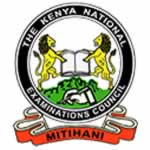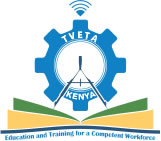Entry Requirements
A PASS in Diploma Module 1 or a PASS in Craft Module 2
Duration: 12 Months
Delivery Method: Both Online & Physical
Fee Structure
Course Fee Breakdown
Trimester 1
| Trimester 2
| Trimester 3
|
Exam Fee Breakdown
| Trimester 1 | Trimester 2 | Trimester 3 | ||||||||||||
|---|---|---|---|---|---|---|---|---|---|---|---|---|---|---|
|
|
|
Other Mandatory Course Requirements
The following are mandatory requirements needed upon admission:
- Photocopy of KCSE result slip or certificate or Equivalent
- Photocopy of National ID Card
- Photocopy of Birth certificate
- 6 A4 sized books
- A minimum 3 ballpoint pens
- A smart phone is greatly necessary
Course Units/Overview
Below is a breakdown of the units taught under this course
|
|
| ||||||||||||||||||||||||||||||||||||||||||||||||||||||||||||
Course Description
Diploma Module 2 in Electrical and Electronics Engineering (Power Option) is a one-year advanced program offered at Uweo College and is designed for students who have successfully completed Diploma Module 1 in Electrical and Electronics Engineering (Power Option). This advanced diploma course, examinable by the Kenya National Examinations Council (KNEC), equips students with comprehensive knowledge and advanced practical skills in electrical and electronics engineering, with a specific focus on power systems. Diploma Module 2 prepares students for more challenging and specialized roles in this dynamic field. To enroll in Diploma Module 2 in Electrical and Electronics Engineering (Power Option), students must have successfully completed Diploma Module 1 in Electrical and Electronics Engineering (Power Option). This ensures that students have the foundational knowledge and practical skills required to excel in this advanced diploma program.
Course Structure:
The curriculum encompasses a wide range of key areas, offering students advanced knowledge and practical skills in electrical and electronics engineering, with a particular focus on power systems:
-
Control Systems: Comprehensive understanding of control systems and their applications in power engineering.
-
Analog Electronics: Advanced knowledge of analog electronic components, circuits, and systems, with a focus on power applications.
-
Engineering Mathematics: Advanced mathematical concepts and techniques applied to complex electrical and electronics engineering problems.
-
Digital Electronics: Proficiency in digital electronic circuits, logic design, and microprocessor systems.
-
Engineering Drawing and Design: Mastery of technical drawing and design principles for electrical and electronics systems.
-
Industrial Programmable Logic Controllers: Skills in programming and using programmable logic controllers for industrial applications.
-
Electrical Circuits Analysis: Advanced analysis of electrical circuits, emphasizing power systems and fault diagnosis.
-
Building Services and Protection: Knowledge of electrical systems for building services and protection measures.
-
Electrical Power Generation and Transmission: Understanding power generation and transmission systems, including advanced concepts and technologies.
Skills and Competencies:
Upon completing Diploma Module 2 in Electrical and Electronics Engineering (Power Option), students will acquire advanced skills and competencies vital for success in the field:
-
Mastery of control systems and their application in power engineering.
-
Comprehensive understanding of analog electronic components, circuits, and systems in power applications.
-
Advanced mathematical skills for solving complex electrical and electronics engineering problems.
-
Skills in digital electronic circuits, logic design, and microprocessor systems.
-
Proficiency in technical drawing and design for electrical and electronics systems.
-
Expertise in programming and utilizing programmable logic controllers for industrial applications.
-
Advanced analysis of electrical circuits, with a focus on power systems and fault diagnosis.
-
Understanding electrical systems for building services and protection measures.
-
Mastery of power generation and transmission systems, including advanced concepts and technologies.
Why Study at Uwezo College
Uwezo College is your ideal choice for quality education and career success. With full licensing from TVET, serving as an examination centre for KNEC and NITA, and being an approved training centre for KASNEB courses, we offer the most comprehensive and accredited education. Our track record of producing top-performing graduates who excel in the job market sets us apart. When you choose Uwezo College, you're making a commitment to your future, ensuring you receive the finest education, expert guidance, and a competitive edge in today's competitive job market. Join us and secure your path to success.
The following are reasons why you should make Uwezo College as the choice for your studies:
- We are a TVET Technical and Business College fully registered with the Ministry of Education
- We provide a serene learning environment and fully equiped workshops
- We have qualified, competent and committed lecturers
- Guaranteed attachment
- We provide bursaries to the extremely needy students
- We have free high speed Internet connectivity to our students
- Affordable fees
- We have clean and spacious hostels
- We provide job linkages
Career Opportunities:
Upon completing Diploma Module 2 in Electrical and Electronics Engineering (Power Option), graduates can pursue advanced positions in electrical and electronics engineering, including Control Systems Engineers, Power Electronics Specialists, and Electrical Design Engineers. This advanced diploma program equips students with the skills and knowledge necessary to excel in more specialized and advanced roles within the electrical and electronics engineering field, particularly within power systems.
Course Instructor(s)
 PHILIP ROTICH KIPTOO
PHILIP ROTICH KIPTOO
 PETER WAWERU NGUGI
PETER WAWERU NGUGI
Examining Body
KNEC
FAQs
What are the requirements for registration/admission as a student?
- KCSE result slip or certificate or Equivalent
- National ID Card or Birth certificate
- 2 Passport size photographs
- Registration Fee
- Student ID Fee
- Maintenance Fee
- Material Fee(where applicable)
- Polo T-Shirt fee
- Insurance Fee
- Student's handbook fee
Course Reviews
Top Rated Reviews
No course reviews are available at the moment. Reviews are only submitted by students persuing the course. Reviews are subject to our terms and conditions.




